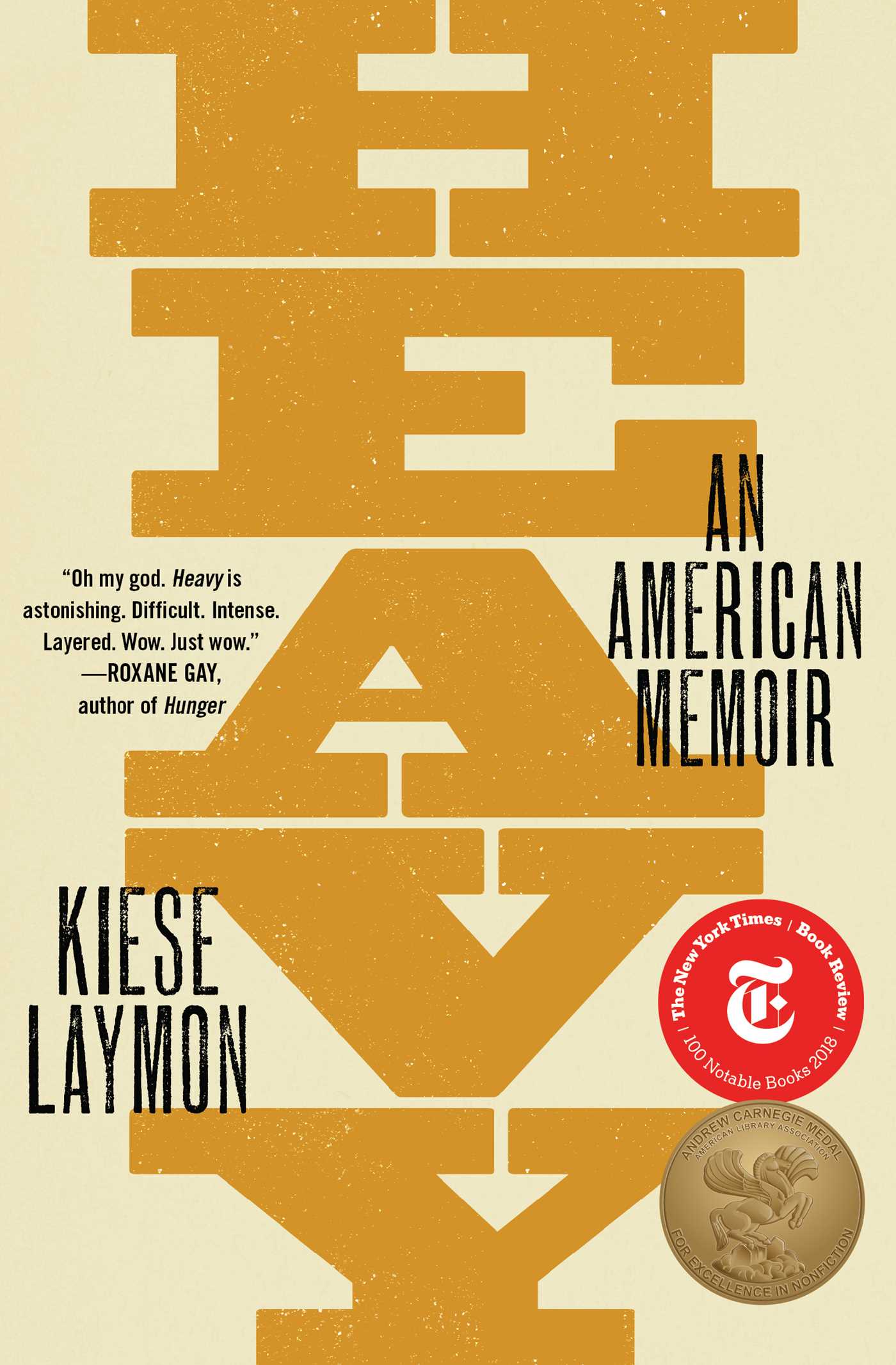Once every several years I get hit in the face and heart and soul with a book that overrides the electrical circuiting in my brain. HEAVY: AN AMERICAN MEMOIR by Kiese Laymon is that cerebrum hijacker. It is one of the most vital pieces of nonfiction I’ve encountered, full of the productive personal and political truth telling we seek out in stories. Whenever I think of the bravery, sincerity, and honesty living in these pages, my heart walls swell and cave under the pressure as my mind yells Now you! I will preface this review by saying that reading HEAVY is not easy. It is hard work dealing with hard subjects and hard truths. It is a challenging exercise in confrontation and discomfort, but rewarding in its goodness. It leaves you happy/sad, all-around tender, and wanting to hug your loved ones.
In HEAVY, Laymon addresses the book to his academically militant mother who expected excellence in all ways in order to make living as a Black man in the South as undamaging as possible. She believed intelligence conveyed through the Queen’s English could free him from circumstance. Bare on these pages are the messiness of parenting, and the internalized consequences of being a product of that parenting. Through this, Laymon chronicles his weight, lending a physical context to his emotional state. As he gets older, his weight becomes a fixation that grows toxic as the burden of secrets and lies around addiction, sexual abuse, and more fester to become caustic, malignant things that ruin relationships of all kinds and almost end him.
In another sense, Laymon addresses the book to America and the systemic oppression and racism that shaped his experiences with poverty and violence. In recounting his upbringing in Mississippi, his college days, and becoming a professor, he conveys the interactions that contextualize navigating the world as a Black man.
Laymon is a formidable sentence creator. His language is lyrical with a style and tone all his own. His distinct manner of expressing emotions and discounted feelings makes the previously indescribable vibrant and accessible: we all get “bubble guts” from anxiety; “laugh until we don’t”; and fake a yawn to cover up sincere expression when tears flood our eyes. With these he provided me a new vocabulary as I realized that I did these things too, that these particular types of shame were not individual but universal.
Two central themes of HEAVY are revision and rereading, which resonate deeply with me, as one of my favorite pleasures as a reader is revisiting a favorite text two, three, or even five times. I’ve read this book thrice, listened to the audio about twice as much, and still revel in finding new and different things to experience, brush up against, learn, and feel each time. It’s an honor to read these words, listen to them, be swept up in their heft, and feel shattered only to be pieced back together wobblier but stronger with the sheer force of the love hiding between the lines.
HEAVY came in like a tornado and unearthed portions of the past I’ve buried in Do Not Open folders of my brain, and forced me to hold a mirror up to myself and my relationships. It’s these singular practices that not a lot of memoirs do. Few foster intentional personal introspection like HEAVY, and that is why I strongly feel it is so important. It is not a passive reading experience, but rather a journey with Laymon to uncover those deep, dark, dirty truths staring right at us screaming for reckoning.









